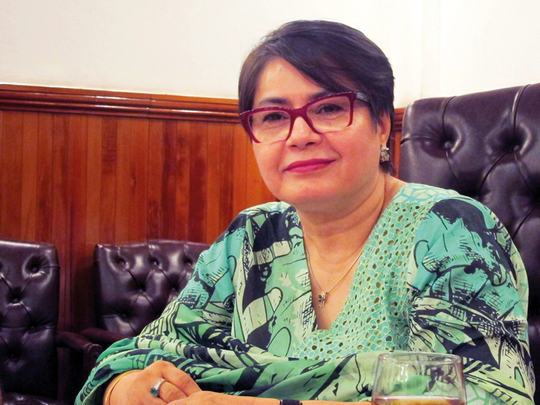
Karachi: The reality of Pakistan’s potential and development has not been conveyed to the rest of the world, due to poor international media coverage and lack of strong official efforts by Islamabad, Pakistani intellectuals say.
Pakistan, they stressed, is like any other country in the world; it has good and bad things. However, it is not getting the opportunity to show its good side, they said.
The country is unable to reflect its true projections, said Parvez Jamil Mir, known as PJ Mir, a prominent Pakistani TV anchor and former professional cricketer.
“International media doesn’t give us enough time to show our potential,” he told a group of UAE media representatives in his office in Karachi.
Commenting on how the western media deals with Pakistan and how people abroad have a different perception of the country, he said “there is no good news” coming out of Pakistan.
News related to terrorism or corruption usually overshadow news that show how Pakistanis in most of the country do live a normal life, intellectuals said.
When media reports on terrorism in Pakistan, they do not report how life is normal in tens of universities or shopping centres across the country, according to one of the elite Pakistanis.
The country of around 200 million population has some of the oldest schools in Asia — in languages, communication and medicine. And today, it is a nuclear power.
During the Cold War era between the US and the former Soviet Union, Pakistan sided with the US and received Afghani refugees and accommodated them. And after terrorist attacks on the US on September 11, 2001, Pakistan became involved in the US-led war against terrorism, particularly against its neighbour Afghanistan.
The two countries do share similar kinds of problems, especially those related to fundamentalism, said Pakistani intellectuals and members of the academia community.
Both “Pakistan and Afghanistan look like the same in the media, but actually we are not. There is a [lot] of difference,” said Kanwal Ameen, professor at the Department of Information Management at the University of Punjab, in Lahore, one of the oldest communication schools in South Asia.
“Pakistan’s impression in the media is not positive,’ said Ameen. “Even if we invite people for conferences, they are reluctant to come because of what is called security threats and fear... No matter what efforts we make, [it won’t succeed], unless the world looks at us as if we are not terrorists and we are equally good human beings like the other parts of the world,” she said.
With an aim to reflect this reality, Punjab University is currently working on finalising the paper work to get its name among the top Asian universities.
So far, there are two private higher institutions among the top 200 Asian universities.
“We need to work on that from our end… The government is very serious of ranking universities, and the chancellor is very serious in making the university come on those ranking… you can attract international students,” Ameen said.












